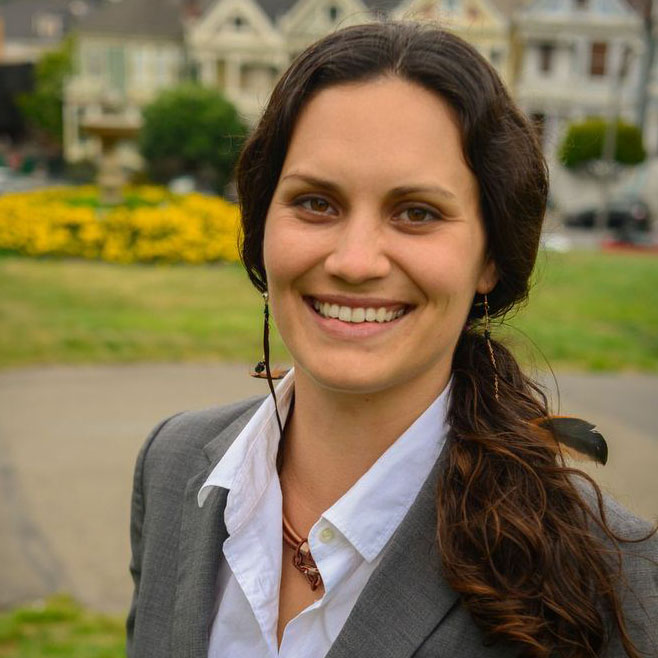
*This is the first article in a series of Q&As with our Student Representatives.
Lily Laurence saw a lot of burnout and disconnection with money and business structures before she began pursuing her MBA in Sustainable Management at Presidio Graduate School. As an artist working in nonprofits and environmental activism, she realized that people had to begin thinking and talking about how business works in order to improve the situation. She found these conversations at Presidio.
What energizes you the most about what you are seeing unfolding for yourself in the Presidio community?
Lily: On a personal level, what has directly come out of my engagement with Presidio this year is graphic facilitation. The reason I’m excited about that is what I’m seeing as a pattern is a lot of complex conversations and I’m excited about finding ways to help those conversations happen better and facilitate them. I think graphic facilitation is an amazing way to help people along and – to make a little pun – help people get on the same page and move a conversation forward.
What commitment do you hold that motivates you to do this work?
Lily: I’m committed to optimism. I‘m committed to the idea that we can imagine something different and we can do it. What we do does matter. I hate when people say we’re working for change. Everything changes all the time. That’s the only constant. The question is what direction is it going to go in? Are we going to be intentional about that change? Are we going to try and choose what that impact looks like?
What motivated you to become a student leader?
Lily: The two formal leadership positions I hold right now are co-chair of the international sustainability club and I’m newly a student leader rep. Essentially it’s because I really love people in this community and I love working with them so I’ve signed up for extra things. Over the winter we did a service-learning trip to Bali in conjunction with ideo.org to do a human-centered design project in Bali. We worked on waste and tourism from an ecological and social sustainability standpoint. I’m also a student leader to make connections stronger because as a small institution we are our student body in a large way. We are a small institution and in the scale of institutions we are fairly young. I think we are our student body so what we do as students matters to the institution as well.
Can you tell me about a moment or anecdote that exemplifies the best of the Presidio community?
Lily: I find Presidio connections in unexpected spaces, especially from my past lives. I will reconnect with an old colleague and realize that they were actually a C4, an early Presidio student. Reconnecting with someone who is connected to Presidio that I knew and liked a long time ago speaks to the community thing I keep talking about. People that come here do interesting work.
What conversation, if begun today, could ripple out in a way that creates possibilities for the future of this community?
Lily: I guess it’s not really a question of what conversation exactly; I’m more interested in who is in the conversation. Because we’re doing a really great job of talking to ourselves and building with people who believe in this and who’ve read Ecology of Commerce. The conversations I’m excited about are with people who are new to this – to systems thinking — and who are skeptical. I think conversations like that can have big ripple effects.
What challenge and opportunity do you see in achieving this outcome?
Lily: You can’t make people talk about what you want to talk about. A lot of what we consider here is framing, understanding your audience. What do different people talk about and how do you reach them based on who they are? We can learn a lot from people who are different from us, who aren’t sitting in discussion about social justice and renewable energy 24/7. To not always be pushing out, but starting genuine dialogue is the tricky part. You can’t just rant at people: A) It doesn’t work; and B) It’s not very much fun.
